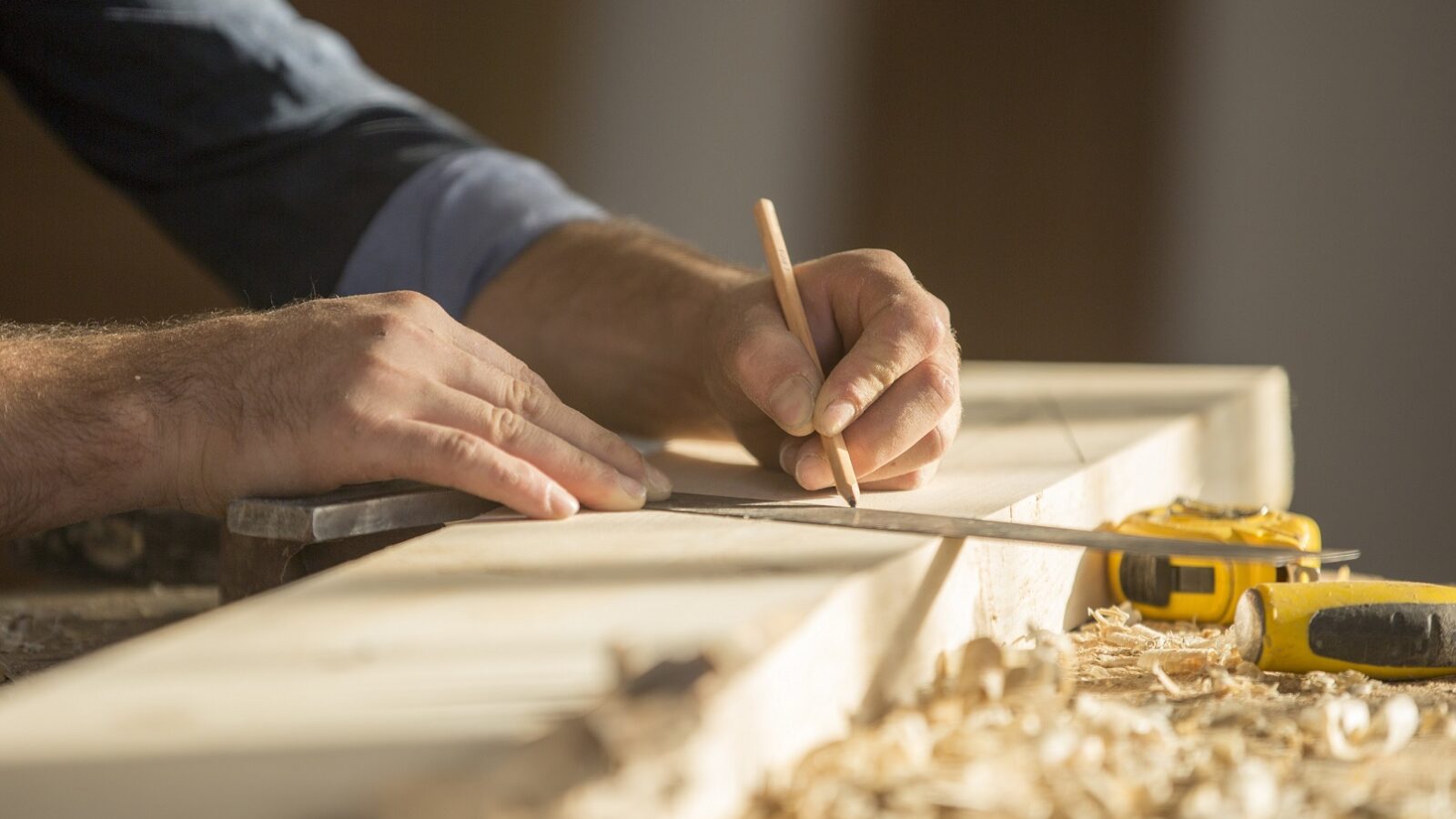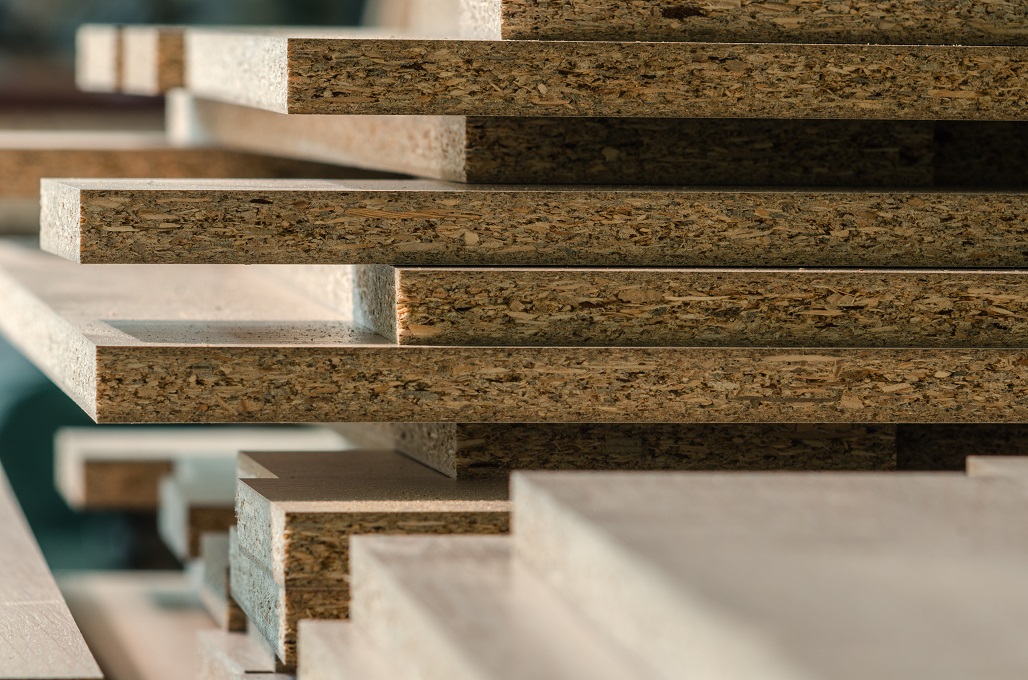Bois, recyclage et innovation : Ecomaison à la pointe

Quand on recycle des meubles, on recycle principalement du bois. C’est pourquoi le bois est un matériau très important chez Ecomaison, l’éco-organisme historique de la filière ameublement. Avec 760 000 tonnes par an, Ecomaison est le 1er fournisseur de bois recyclé en France. A présent, avec l’élargissement de notre activité à la filière des Produits et Matériaux de Construction du Bâtiment (PMCB) – où le bois est majoritairement présent, les volumes à recycler ne cessent d’augmenter.
Le point sur le recyclage du bois, avec Ambre Le Ferrec, Responsable Innovation, Recherche & Développement, Experte bois et dérivés de bois au sein d’Ecomaison.

Vous occupez un poste spécifiquement dédié au bois au sein d’Ecomaison. Quels types d’innovations accompagnez-vous ?
Le bois se recycle aujourd’hui exclusivement sous forme de panneaux de particules, le fameux « aggloméré ». Nous poursuivons deux axes de recherche :
- Nous explorons les innovations autour du recyclage des panneaux de fibres à densité moyenne (MDF), qui composent de nombreux meubles du marché. Pour l’instant ce matériau n’est pas recyclable mais les derniers travaux entrepris montrent que des solutions sont techniquement viables. Il est possible d’en intégrer dans des produits d’isolation de type laine de bois, ou encore en proportion minoritaire, dans des panneaux de particules.
- Nous poursuivons également des travaux pour améliorer la préparation des particules de bois issues des panneaux de particules arrivés en fin de vie. L’objectif est d’en augmenter le taux d’intégration dans des nouveaux panneaux et ainsi amplifier la circularité du bois.
Par ailleurs, en ce qui concerne spécifiquement la filière bâtiment, certains types de bois que nous collectons en fin de vie ont parfois des dizaines d’années de bons et loyaux services mais peuvent contenir des substances chimiques, qui aujourd’hui sont considérées comme des perturbateurs de recyclage…. Nous investiguons donc différentes techniques pour mieux identifier ces substances, trier et réorienter les volumes concernés vers les bons traitements, tout en préservant une bonne recyclabilité pour les bois non traités.
Toujours l’enjeu du tri…

Oui, toujours ! Mieux on trie, mieux on oriente. Et orienter correctement, c’est augmenter les chances que le bois soit recyclé au maximum de ses possibilités.
Comment accompagnez-vous l’innovation ?
Ecomaison se fixe comme objectif de lancer, tous les deux ans, un appel à projets innovation pour identifier de nouveaux projets de recyclage et de valorisation des produits en fin de vie. Cette consultation s’adresse à tous les types de projets (du moins aux plus mâtures) et concerne tous les matériaux pris en charge par notre structure (bois, métal, mousses, plastiques, textiles…).
Au travers de ce dispositif, Ecomaison a accompagné plus de 30 porteurs de projets au cours de ces 10 dernières années.
Parallèlement, nous avons un programme – Innovation For Eco-Design -dédié à nos adhérents pour les accompagner dans leur démarche d’éco-conception et d’optimisation de l’impact environnemental des produits mis sur le marché. Il a pour ambition de créer des synergies entre des innovateurs que nous sélectionnons dans le monde entier et nos adhérents.
Découvrir l’Innovation Day
Quels sont les enjeux pour demain ?

L’enjeu principal pour demain reste bien entendu le passage raisonné et maîtrisé d’une économie linéaire à une économie circulaire qui permettra une meilleure optimisation des ressources disponibles au « coût » carbone le plus bas.
Cela passe par une augmentation sans précédent du recyclage mais pas seulement. Le réemploi, la réparation, l’allongement de la durée d’usage des produits et matériaux sont des vecteurs essentiels et primordiaux pour l’atteinte de ces objectifs.
Enfin, il y a également un enjeu d’indépendance et d’autonomie dans l’exploitation de nos ressources qui passe par une relocalisation d’industries qui consomment de la matière pour la recycler ou la valoriser sur le territoire français. C’est grâce à cet investissement dans l’innovation que nous comptons bien relever ce défi.
Parlez-vous beaucoup avec nos voisins européens ?
Oui, pour porter la voix singulière de la France qui, il faut le noter, a quelques longueurs d’avance sur le sujet du recyclage et de la circularité des matières par rapport à ses voisins européens. Force est de constater que nous faisons figure de laboratoire d’expérimentations pour nombre de nos voisins qui s’intéressent de plus en plus à ces initiatives telles que la filière de réemploi et de recyclage ameublement que nous avons déployée il y a plus de 10 ans maintenant. Ces échanges nous font collectivement progresser.
Nous avons une responsabilité forte auprès de nos adhérents : leur apporter toute la connaissance nécessaire pour réduire l’impact environnemental de leurs produits et services.
À lire aussi
Découvrez un article plus complet sur le recyclage du bois sur WoodPartners.fr